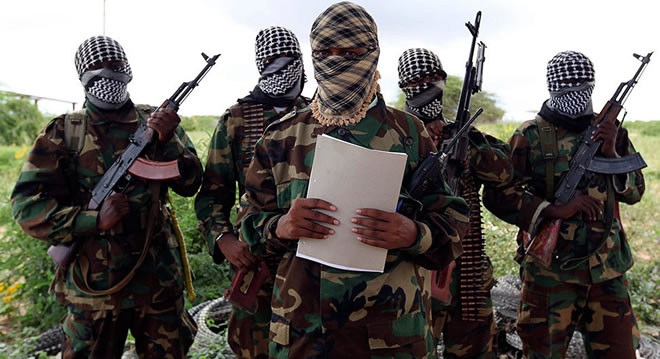
By Elise Wagner
Wednesday, January 27, 2016

Multinational armed forces in Somalia were dealt another blow last week as al-Shabab gained control of an African Union (AU) military base in el-Ade, a town in southern Somalia. 70 soldiers were killed in the attack, and militants took the military equipment abandoned by retreating troops.
In recent months, al-Shabab has captured two other AU military bases. In September 2015, militants captured the Janale base, situated approximately 90km from Mogadishu, along with its surrounding town. AU forces were eventually able to take back the base, though they reportedly incurred 50 casualties in the process. In June 2015, al-Shabab captured the military base of Lego, also in the southern region of Somalia.
The AU forces stationed in Somalia are part of the African Union Mission in Somalia (AMISOM), a multinational force of 22,000 soldiers that was originally deployed in 2007 with a six-month mandate. Nine years later, the force has had much success; AU forces aided in the expulsion of al-Shabab from Mogadishu in 2011 and had been successfully reclaiming territory until recently. Throughout its mandate, the AU’s member states have consistently supplied AMISOM with troops, making it Africa’s largest peacekeeping mission currently in operation. As for global efforts, there is no significant United Nations peacekeeping force operating in Somalia at this time. However, the United Nations Assistance Mission in Somalia (UNSOM), established in 2013, provides approximately 90 support and logistics staff to local governments and AMISOM troops.
Founded in 2006, al-Shabab is the East African branch of al-Qaeda currently based in Somalia and Southern Yemen. The group carries out attacks, generally consisting of one or more suicide bombers, in Somalia, Yemen, and neighbouring states such as Kenya. Militants control large swaths of territory in southern Somalia, where public executions, among other atrocities, are not uncommon. The Somali central government lacks the capacity to govern the majority of the country, allowing various pro-government and opposition groups, including al-Shabab, to maintain relatively high autonomy in their appropriated territories.
Al-Shabab’s recent gains and the resulting instability could derail an important milestone for Somalia. The East African nation is scheduled to hold its first general election in over 50 years as set out in the ‘Mogadishu Declaration,’ issued on December 15, 2015. The document, produced by Somalia’s National Consultative Forum and signed under the purview of UNSOM, called for a conference on January 10th, 2016 for a final decision on the electoral process to be made. The conference, held in the port city of Kismayo, was completed on January 16th and brought together leaders from prominent Central and East African states as well as other Somali officials. No official communiqué has been released at this time, but preliminary reports have been promising.
Internal power struggles and a civil war beginning in 1991 have prevented many democratic elections since Somalia’s independence in 1960. A general election was slated for 2012 but never occurred. Instead, members of the interim government chose to elect a new president and prime minister from within sitting parliamentarians. The international community has continued to place pressure on Somalia’s government to uphold its promise of a national election.
Edited by E. Harris